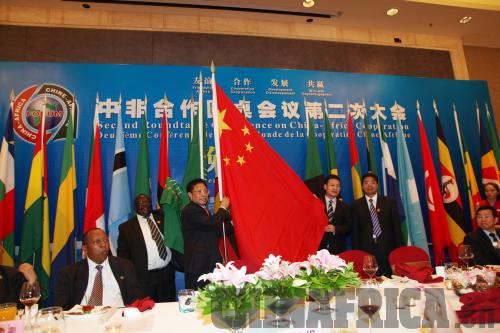|

Mid-November is hot in Wanning, on south China's island province of Hainan. The tropical climate and holiday atmosphere embraced a legion of African delegates, there to enjoy the sunshine but more importantly to take part in a Sino-African cooperation conference.
The Second Roundtable on China-Africa Cooperation on November 10-13 saw more than 500 participants, including government officials, former diplomats, former politicians and business people from China and more than 30 African countries, gathered.
"I have never seen so many Africans before," said Li Wei, a bellboy at Le Méridien Hotel where the conference was held. But Li may see even more Africans in the future. According to Ji Peiding, President of the Association of Former Diplomats of China (AFDC) that organized the conference, Wanning Government has agreed to host the future roundtable conferences on a long-term basis.
The event held by AFDC, an NGO, highlights the important role NGOs play in promoting Sino-African relations. "As you can see from the conference, NGOs are playing an increasingly important role in promoting bilateral cooperation," Dirunda-Kivejinja, former Prime Minister and former Minister of Internal Affairs of Uganda, told ChinAfrica.
The conference concluded with the issuance of the Wanning Declaration which will help enhance mutual understanding and publicize China's Africa policies through people-to-people contacts, according to Ji.
Improved performance needed
"The Wanning Declaration is an announcement of Africa-related Chinese enterprises and organizations to improve their performances while doing business in Africa," Liu Guijin, Special Representative of the Chinese Government for African Affairs who has been involved with Africa since 1981, told ChinAfrica.
The declaration appreciates the rapid development of Sino-African cooperation after 2000 when the Forum on China-Africa Cooperation (FOCAC) was established. Liu also said that new problems have arisen with an increase in bilateral cooperation, such as irrational trade structures and the need for standardizing operational activities of some Chinese enterprises, especially private small and medium companies.
According to Liu, the main players of Sino-African cooperation changed profoundly in the past decade. Before 2000, the major players in the bilateral cooperation were governments. After the establishment of FOCAC, many Chinese enterprises, including state-owned and private, are conducting business in Africa. "That's why we need documents like the Wanning Declaration, calling for enterprises to watch their activities in Africa," said Liu.
|